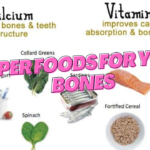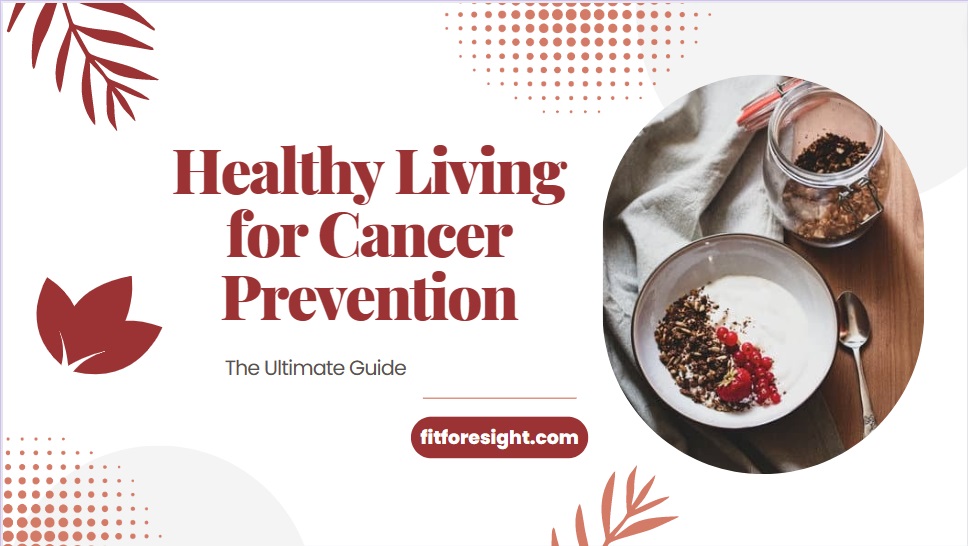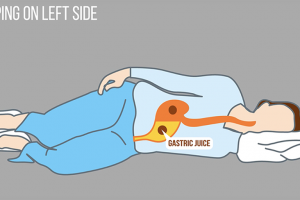Cancer is a deadly disease that affects millions of people worldwide. Although there is no guaranteed way to prevent cancer, leading a healthy lifestyle can reduce the risk of developing it. In this article, we will explore the importance of healthy living for cancer prevention and provide practical tips to help you maintain a healthy lifestyle.
Table of Contents
- Understanding Cancer
- The Importance of Healthy Living for Cancer Prevention
- Healthy Eating for Cancer Prevention
- The Role of Exercise in Cancer Prevention
- Managing Stress for Cancer Prevention
- The Importance of Sleep for Cancer Prevention
- Avoiding Harmful Substances for Cancer Prevention
- The Benefits of Early Cancer Detection
- How to Lower Your Risk of Developing Cancer
- Cancer Prevention Tips for Different Stages of Life
- Cancer Prevention Myths and Facts
- Coping with a Cancer Diagnosis
- The Role of Social Support in Cancer Prevention and Treatment
- The Importance of Regular Cancer Screenings
- Conclusion
- FAQs
Understanding Cancer
Cancer is a disease that occurs when abnormal cells grow uncontrollably and invade other tissues and organs. There are many different types of cancer, and each type has its own unique characteristics and treatment options. Some of the most common types of cancer include breast cancer, lung cancer, prostate cancer, and colorectal cancer.
The Importance of Healthy Living for Cancer Prevention
Leading a healthy lifestyle is one of the most effective ways to reduce your risk of developing cancer. A healthy lifestyle can help prevent cancer by strengthening your immune system, reducing inflammation, and promoting healthy cell growth.
Healthy Eating for Cancer Prevention
A healthy diet is essential for cancer prevention. Eating a variety of fruits, vegetables, whole grains, and lean protein can help reduce your risk of developing cancer. Some foods that may help prevent cancer include:
- Berries, such as blueberries, raspberries, and strawberries
- Leafy green vegetables, such as spinach and kale
- Cruciferous vegetables, such as broccoli, cauliflower, and Brussels sprouts
- Whole grains, such as brown rice and quinoa
- Lean protein, such as chicken, fish, and tofu
The Role of Exercise in Cancer Prevention
Regular exercise is also essential for cancer prevention. Exercise can help reduce inflammation, improve circulation, and boost the immune system. Aim for at least 30 minutes of moderate-intensity exercise most days of the week. Some examples of moderate-intensity exercise include:
- Brisk walking
- Cycling
- Swimming
- Dancing
Managing Stress for Cancer Prevention
Chronic stress can weaken the immune system and increase the risk of developing cancer. Learning how to manage stress is essential for cancer prevention. Some techniques that can help manage stress include:
- Deep breathing exercises
- Meditation
- Yoga
- Tai chi
- Counseling
The Importance of Sleep for Cancer Prevention
Getting enough sleep is critical for cancer prevention. Sleep helps the body repair and regenerate cells, which can help reduce the risk of developing cancer. Aim for 7-8 hours of sleep per night.
Avoiding Harmful Substances for Cancer Prevention
Avoiding harmful substances is also essential for cancer prevention. Smoking and exposure to secondhand smoke are the leading causes of lung cancer. Limiting alcohol consumption and avoiding exposure to chemicals and radiation can also help reduce the risk of developing cancer.
The Benefits of Early Cancer Detection
Early cancer detection is essential for successful treatment and improved outcomes. Regular cancer screenings can help detect cancer in its early stages when it is most treatable.
How to Lower Your Risk of Developing Cancer
Some ways to lower your risk of developing cancer include:
- Eating a healthy diet
- Exercising regularly
- Managing stress
- Getting enough sleep
- Avoiding harmful substances

























Add Comment